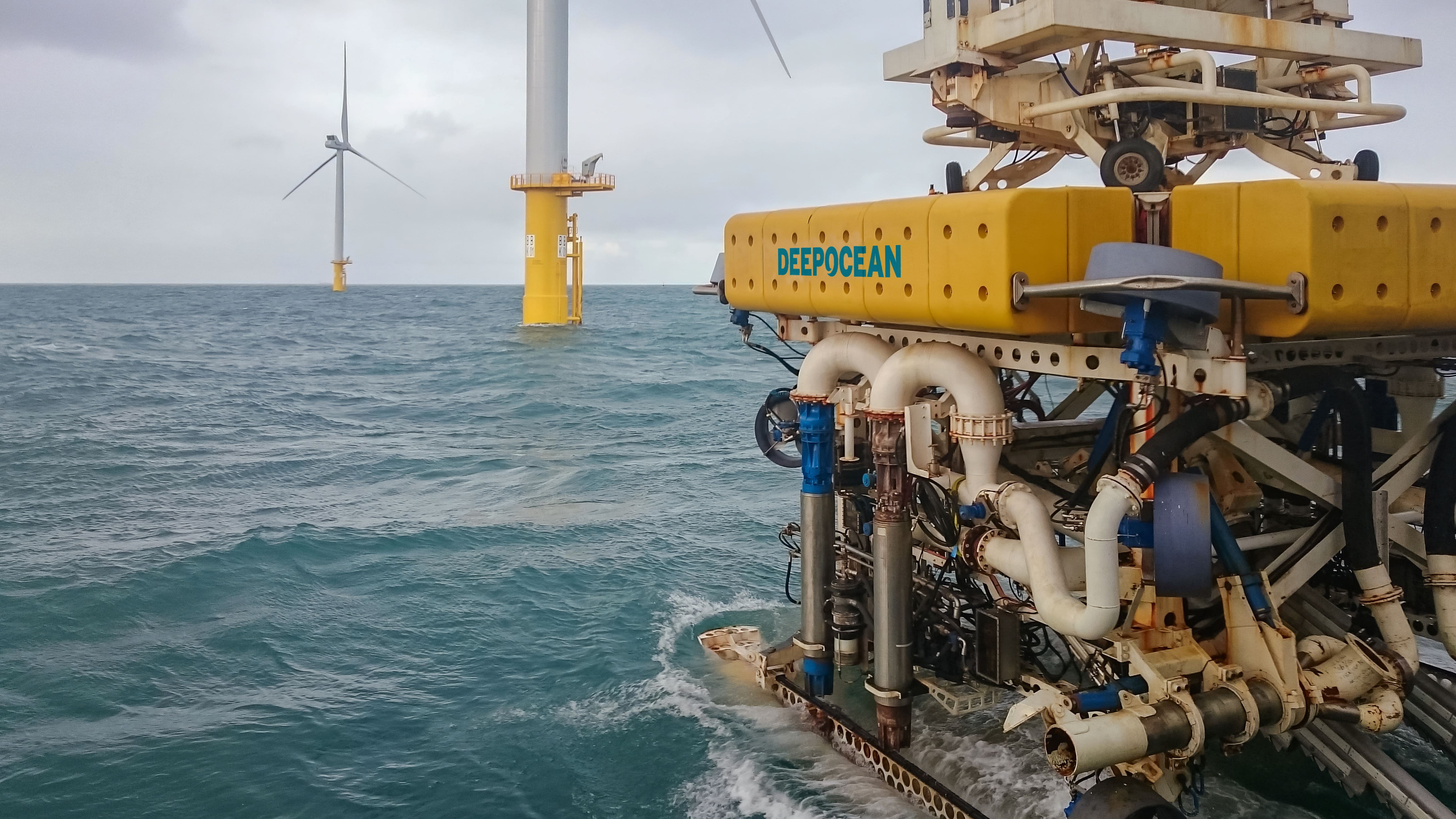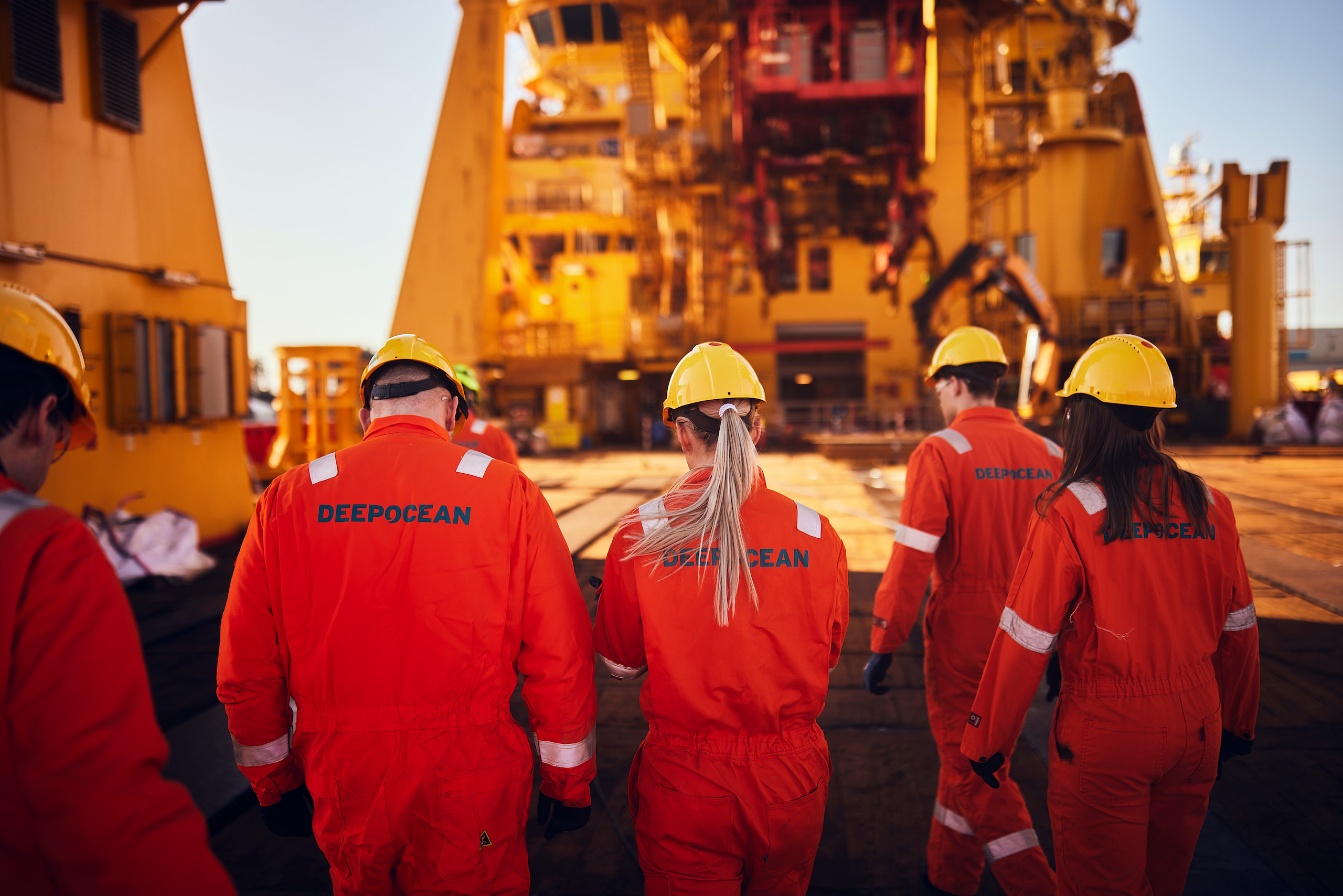Profitable growth and strong outlook for DeepOcean
In 2022,DeepOcean delivered revenue of USD 566.1 million, up 13.4 percent from USD499.4 million in the prior year. The group’s operating profit (EBIT) ended at USD 65.8 million, a significant improvement from USD 49.9 million in 2021.
“We delivered a solid 2022 where the important financial KPIs pointed in the right direction. IMR work in the offshore energy industries remains the key revenue driver, but income from removal and recycling of offshore infrastructure is proportionally growing the most,” says Frode Garlid, CFO of DeepOcean Group.
DeepOcean has in recent years pursued a strategy of applying its specialist subsea oil and gas engineering and project management competence to numerous other ocean-based industries such as offshore renewables, subsea minerals and recycling of subsea infrastructure. Across these industries, the group delivers marine services such as seabed surveys, engineering, project management, installation, inspection, maintenance and repair (IMR) services.
Remote operations as energy transition driver
In 2022,DeepOcean made several strategic measures to enable a cost-effective energy transition at sea. It established two joint ventures – Remota AS and USV AS –together with Solstad Offshore and Østensjø to accelerate the use of remotely controlled operations offshore.
DeepOcean entered into a strategic partnership agreement with Aker BP, where DeepOcean is the preferred supplier of subsea services for the next few years. The partnership will drive forward the development and use of remotely controlled technologies.
DeepOcean has also developed an Autonomous Inspection Drone which is currently carrying out its first offshore operations.
Furthermore, DeepOcean acquired Norwegian engineering and technology company Installit, which specializes in subsea cables to strengthen the group’s offering within offshore renewables.
“We consider remote operations pivotal in driving down emissions and costs for operators of offshore energy assets, thereby enabling more offshore energy developments. Over the years we have proven our willingness to invest into realizing remote operations and 2022 was no different,” adds Øyvind Mikaelsen, CEO of DeepOcean.
Moreover, DeepOcean maintains its successful vessel light strategy and continues to modernize its fleet through collaborating with shipowners that are willing to invest in emission reductions, including installation of battery hybrid systems. As a consequence,CO2 emission from DeepOcean’s operations has been reduced by 16 percent since2020.
Growth across the board
DeepOcean experienced strong growth in Europe and record high activity in North America in2022. The company’s Africa business saw a decline in revenue in 2022, but is expected to grow substantially in 2023 as a significant amount of offshore work has been secured for this year.
Within oil and gas, subsea IMR work was the main revenue driver for DeepOcean, which also doubled its operating revenue from the removal and recycling of old subsea infrastructure.
The group also saw an increase in work within renewable energy during 2022, when it supported operators of offshore wind farms in both Europe and the USA.
“The growth in offshore wind developments has progressed slightly slower than expected. This is partially due to replacement effects, where ‘energy security’ work has taken precedence, but also and maybe more importantly, we still see a supply chain imbalance within the offshore renewables market. However, the long term outlook is positive and our message to developers and operators is that we have the competence and assets, including our remote operations offering, to support them,” adds Øyvind Mikaelsen.
Strong outlook
Throughout 2022, DeepOcean received new orders worth a total of USD 705.7 million, up from USD 556.7 million the year before. At year-end 2022, the group’s order backlog stood at USD 411.7 million, versus USD 272 million one year prior. At the end of February 2023, the order backlog had grown to USD 498 million following several project wins including contracts to support Equinor on both the Irpa and Verdande field developments on the Norwegian continental shelf.
“Our strategy to diversify into more offshore energy segments and other ocean-based industries has proven successful. Today’s DeepOcean is much less vulnerable to sector-specific fluctuations and our order backlog is very high, which together with attractive frame agreements provides excellent visibility for the coming years. We look forward to 2023 and the coming years,” concludes Øyvind Mikaelsen.
DeepOcean has 1,225 employees, including 400 engineers, which delivers services to ocean-based industries in Europe, West Africa and North America.
(ENDS)
For further details we encourage you to read the 2022 Annual Report
For further media information, please contact:
Matthias Jungwirth
M&A and Corporate Development Director | DeepOcean
M |+31615146872
E | communications@deepoceangroup.com
About DeepOcean
DeepOcean is a world-leading ocean services provider, enabling energy transition and sustainable use of ocean resources, offering survey, engineering, project management, installation, maintenance, and recycling services for oil and gas, offshore renewables, deep sea minerals, and other ocean services.
Across the global offices, DeepOcean is a trusted independent solutions provider with highly skilled industry experts, using world-class fit-for-purpose tools and technology to drive cost-efficient and safe operations. The company delivers innovative engineering solutions focusing on remote and unmanned operations and digitally-enabled services while continuously striving to lower the carbon footprint.


.jpg)
